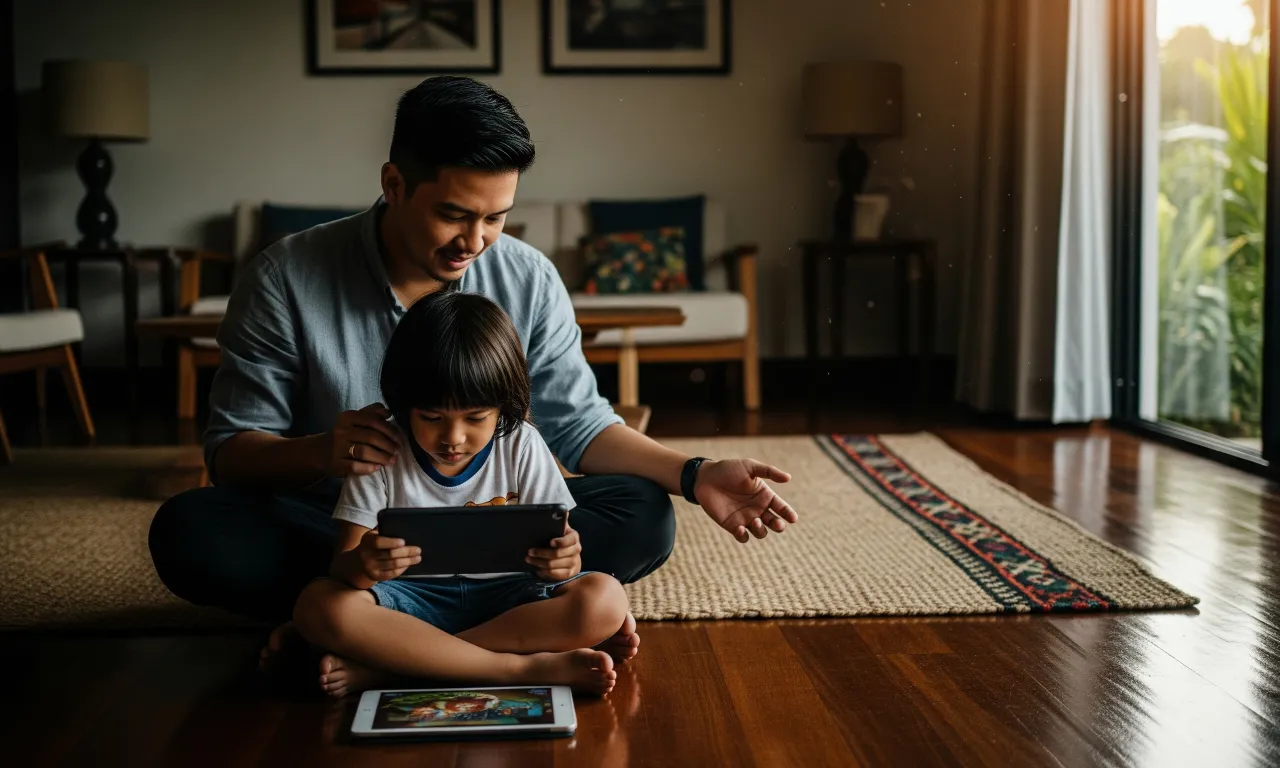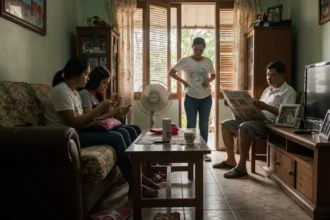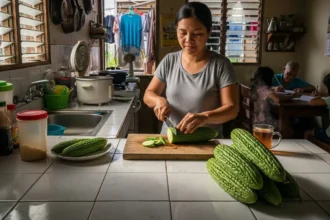📱 The Digital Divide: A New Kind of Parenting Drama
For many Filipino parents, especially those who belong to the Millennial or Gen Z generations, raising a child today feels like entering a foreign country. We grew up playing piko and taguan outside. Our entertainment was a television with only a few channels. A computer was a rare and expensive luxury. Our children, on the other hand, are digital natives. They are Gen Alpha, born after 2010. They have never known a world without the internet. Their toys are often apps. Their teachers are sometimes YouTube videos. This presents a unique and dramatic challenge. The question on every parent’s mind, from a quiet home in Isabela to a bustling condo in Manila, is the same: how to raise Gen Alpha kids in the Philippines? We need to balance our deeply cherished Filipino family values with a technological world that is changing at breakneck speed.
- 📱 The Digital Divide: A New Kind of Parenting Drama
- 💻 The Digital Dilemma: Navigating Screen Time
- 👨👩👧 Reconnecting with Filipino Roots
- 💪 Building a Resilient Generation
- 👨👩👧👦 The Parent’s Role: Not a Teacher, But a Partner
- ❓ FAQs about Raising Gen Alpha
- The Path Forward: A Bridge to a New World
- 🧭 References
This is a new kind of parenting drama. It is a daily battle to find a balance between screen time and real-world connection. It is a struggle to teach respect for elders when their world is one of instant gratification. It is a fight to instill compassion in a world of online trolls. The rules have changed. The old playbook no longer applies. But that does not mean we are helpless. It means we have to adapt. It means we have to be more intentional with our parenting. This is a story about finding that new path, a path that honors our past while embracing the future.
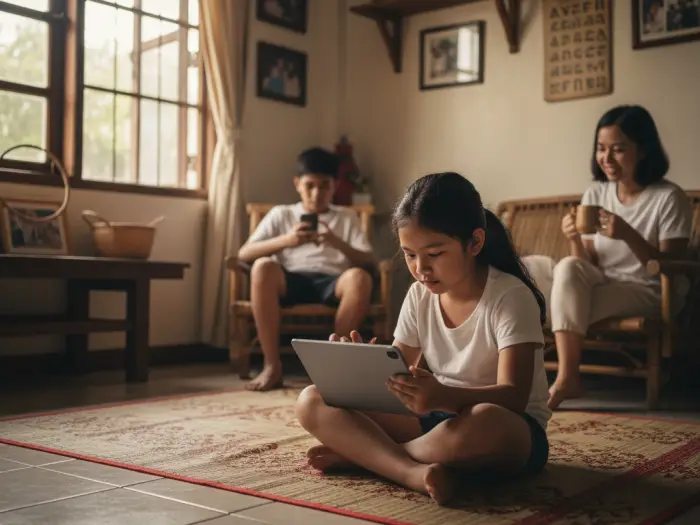
💻 The Digital Dilemma: Navigating Screen Time
The most visible and immediate challenge of raising Gen Alpha is screen time. For many, it feels like a constant war. Parents are often worried that their children are spending too much time on tablets and phones. However, the truth is more complex. Technology is an integral part of their world. We cannot simply ban it. We have to learn how to manage it.
📱 The Screen Is the New Playground
For Gen Alpha, screens aren’t just distractions-they’re where friendships form, skills develop, and creativity flourishes. But not all screen time is created equal. Parents can guide children toward apps and platforms that blend entertainment with learning.
- Educational Apps – Duolingo (language skills), Prodigy Math, and Kahoot! make learning feel like a game.
- Filipino Culture Content – YouTube channels like Batibot Classics, Pinoy Folktales Animated, or Philippine History for Kids introduce heritage in fun, digestible ways.
- Creative Play – Platforms like Roblox and Minecraft can be learning tools when paired with coding basics, digital architecture, or problem-solving challenges.
- Family-Friendly Streaming – Curated playlists on Netflix Kids or Disney+ can be paired with discussion time afterward, turning passive watching into critical thinking practice.
👉 The key isn’t eliminating screens, but teaching kids to navigate digital spaces wisely. By curating content and co-viewing occasionally, parents transform screen time into modern playtime that stimulates both intellect and imagination.
🕰️ Setting Boundaries, Not Bans
Flat bans often backfire, making kids more secretive about their online habits. Instead, boundaries that balance freedom and responsibility are more effective.
- Set Family Media Rules – Example: No gadgets at the dining table or 1 hour of screen time after homework. Consistency makes rules easier to follow.
- Use Parental Control Tools – Apps like Google Family Link or Qustodio help manage screen time, app access, and bedtime restrictions without constant nagging.
- Create Device-Free Zones – Bedrooms and study areas should stay gadget-light to encourage better focus and sleep.
- Offer Alternatives – Replace “don’t use your phone” with options like biking, sketching, or helping in the kitchen, so kids don’t feel deprived.
👉 Boundaries teach kids self-regulation. The goal is not just compliance, but helping them grow into adults who can set healthy digital habits on their own.

👨👩👧 Reconnecting with Filipino Roots
In an age of global connectivity, it is more important than ever to instill our children with a strong sense of Filipino identity. Our values are what make us who we are. They are a powerful anchor in a chaotic world.
🙏 Beyond the Screen: The Power of Mano Po and Po at Opo
Traditional values are not outdated. They are timeless. We must teach our Gen Alpha children the importance of respect. This means teaching them how to do a mano po to their elders. It means teaching them to use po at opo when they are speaking to adults. These are not just words or gestures. They are powerful symbols of respect, honor, and our unique cultural identity. This respect is not just for elders. It is for everyone. It is a crucial foundation for a compassionate and empathetic human being.
📖 Storytelling and Tradition
Amid all the digital noise, stories remain powerful bridges between generations. Filipino families have a rich treasury of legends, epics, and cultural traditions that can be retold in modern ways.
- Folk Tales & Epics – Share the Ibong Adarna, Alamat ng Pinya, or Biag ni Lam-ang in bedtime storytelling.
- Interactive Storytelling – Use puppets, costumes, or even Lego figures to act out tales. Kids remember stories better when they participate.
- Festivals & Local Heroes – During fiestas, talk about why the traditions matter, who the patron saint is, or how local heroes shaped the community.
- Digital Storytelling – Apps like Epic! or YouTube readings of Filipino myths can supplement family reading.
👉 When parents keep storytelling alive, they give Gen Alpha a cultural anchor. It’s not just entertainment-it’s identity passed on through narratives, ensuring kids remain rooted while navigating a globalized future.

💪 Building a Resilient Generation
Raising Gen Alpha is not just about managing technology and teaching values. It is also about preparing them for a future that will be full of challenges. We must teach them to be resilient, resourceful, and proactive.
💰 Financial Literacy from a Young Age
In a world of e-wallets and online shopping, Gen Alpha must learn money smarts early. Financial literacy for kids doesn’t mean spreadsheets-it means fun, hands-on lessons about value, saving, and choice.
- Piggy Banks with a Twist – Introduce the “3 Jars Method”: Save, Spend, Share. Label three jars and guide kids in dividing their weekly allowance.
- Role-Playing Games – Pretend play like “mini sari-sari store” or “palengke” helps kids grasp buying, selling, and making change.
- Allowance with Responsibility – Instead of giving money freely, tie it to age-appropriate chores so kids connect effort with earning.
- E-Wallet Basics – For older kids, introduce GCash or Maya with strict limits. Show them how digital payments work, but stress budgeting.
- Storytelling Through Money – Use folk tales like Juan Tamad or Alamat ng Sampaguita to teach lessons about laziness, hard work, and rewards.
👉 Teaching money skills early empowers kids to make smart choices later. By linking financial habits to daily life, parents prepare their children to thrive in a future where digital money will be the norm.
🤔 The Bahala Na vs. Proactive Mindset
The bahala na attitude, while sometimes seen as a form of courageous fatalism, can also lead to a lack of planning. We must teach Gen Alpha to be proactive. We must teach them to think ahead. We must teach them to solve problems. This table contrasts the two mindsets.
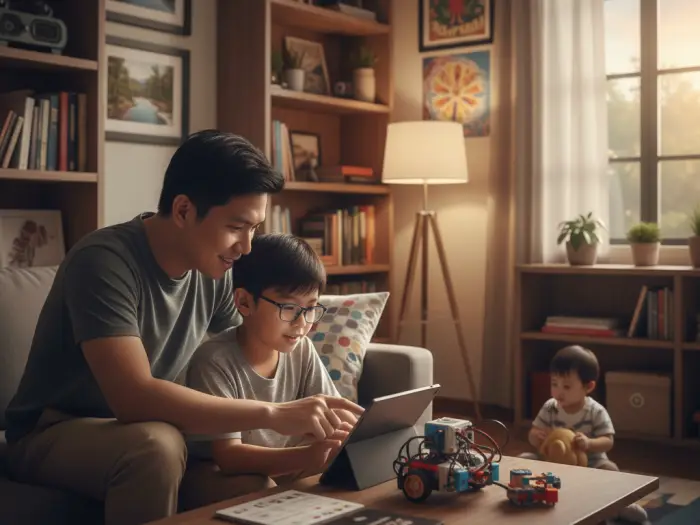
👨👩👧👦 The Parent’s Role: Not a Teacher, But a Partner
Parenting in the age of Gen Alpha requires a shift in mindset. Gone are the days when parents were the sole authority and fountain of knowledge. Today, information is everywhere, and kids often learn faster than we do in the digital space. Our role has evolved-we are no longer just teachers handing down lessons, but partners and collaborators, walking beside our children as they navigate a fast-changing world.
Be a Digital Role Model – Children mirror what they see. If we want them to use technology wisely, we must first model that behavior. Limit your own doom-scrolling, avoid using your phone at the dinner table, and show them how you use digital tools productively-whether it’s paying bills on GCash, reading the news, or watching documentaries. When they see you practicing discipline, they are more likely to follow suit.
Listen with Empathy – To Gen Alpha, the digital world is not “virtual”-it’s real. Their online friendships, victories in mobile games, or anxieties from social media are as valid as face-to-face experiences. When they open up about these struggles, resist the urge to dismiss them as “just online drama.” Instead, listen with empathy, ask questions, and guide them in finding healthy ways to cope. A child who feels heard is more likely to confide in you when bigger issues arise.
Embrace the Change – It’s tempting to think we know best because we are older. But in the digital landscape, sometimes they are the experts. Let them teach you how Roblox works, what TikTok trends mean, or how Discord communities operate. By allowing them to lead in their world, you show respect for their expertise. This builds trust and strengthens your bond.
Ultimately, parenting Gen Alpha is about partnership, not control. Our children don’t need us to be all-knowing-they need us to be present, patient, and willing to learn alongside them. By balancing guidance with openness, we empower them to thrive not just as digital natives, but as grounded, responsible, and compassionate Filipinos.
❓ FAQs about Raising Gen Alpha
Q1: How do I raise Gen Alpha kids in the Philippines with traditional values?
A: Model respectful behavior in daily life, teach Filipino customs like mano po and using po and opo, and share family stories, myths, and traditions. Encourage participation in fiestas, barangay events, and Sunday gatherings to keep cultural roots strong.
Q2: How much screen time is too much for Gen Alpha?
A: There’s no fixed rule, but most experts recommend 1–2 hours of quality screen time for younger kids and balanced use for older ones. The key is to set boundaries, co-view, and ensure digital activities are paired with outdoor play, reading, and family interaction.
Q3: What are the biggest challenges for Filipino parents raising Gen Alpha?
A: Managing screen time, instilling traditional values in a hyper-digital world, ensuring safety online, and preparing children for fast-changing economic and social realities while keeping them grounded in Filipino identity.
Q4: Should I be worried about Gen Alpha’s reliance on technology?
A: Don’t worry-embrace it wisely. Technology is part of their generation’s DNA. Guide them to use it for learning, creativity, and communication, while teaching balance so it doesn’t replace real-world experiences and relationships.
Q5: How can I protect my child from online dangers like cyberbullying or scams?
A: Start with open conversations. Teach them not to share personal details online, use parental controls, and keep communication lines open so they’ll come to you if something feels wrong. Encourage them to treat others online with the same respect they’d show in person.
Q6: What’s the best way to introduce Filipino culture to Gen Alpha kids?
A: Use storytelling, folk tales, and local history. Take them to fiestas, heritage sites, or cultural shows. Even simple practices like cooking traditional dishes together or speaking in the mother tongue daily keep heritage alive.
Q7: How can I teach Gen Alpha kids financial responsibility early?
A: Start small with allowances. Use the “Save, Spend, Share” jar system, or role-play sari-sari stores at home. For older kids, let them handle simple purchases with cash or limited e-wallets like GCash to practice budgeting.
Q8: What values should Filipino parents prioritize for Gen Alpha?
A: Respect (paggalang), responsibility (pananagutan), resilience (tatag), and empathy (pakikipagkapwa). These values balance modern global skills with the timeless Filipino spirit of community and family.
Q9: How do I balance academics with play for Gen Alpha?
A: Remember that play is learning too. Encourage outdoor activities, arts, and sports alongside academics. Structured schedules help, but downtime for creativity and unstructured play is equally important for growth.
Q10: How can parents prepare Gen Alpha for the future job market?
A: Focus on skills that last-critical thinking, adaptability, digital literacy, and collaboration. Expose them to coding, creative writing, or problem-solving games early. Pair this with strong values and communication skills so they grow into well-rounded individuals.
The Path Forward: A Bridge to a New World
How to raise Gen Alpha kids in the Philippines is one of the most significant challenges of our time. It is a journey of constant learning and adaptation. But it is also a journey filled with immense opportunity. We have the chance to raise a generation that is not only digitally fluent but also deeply rooted in our culture. We have the chance to raise children who are resilient, compassionate, and ready to face the future. The key is to be a bridge-a bridge between our past and their future. We can do this. We can raise a generation that is both technologically advanced and truly Filipino.
🧭 References
-
Inquirer Lifestyle – How to Raise Generation Alpha Kids
-
Parenteam PH – Physical Play and Mental Development
-
BW Online – Generation Alpha to Make Up 27% of PH by 2030
-
Empath PH – Gen Alpha’s Relationship with Technology
-
WUP Elementary – Parenting Strategies for Gen Alpha



